Joseph Scapellato, author of “The Made Up Man,” recommends existential crime novels
The public high school I went to was huge enough to have a radio station. When I was a junior, I wrote and produced a weekly radio drama, a film noir/detective parody called Richard Helmet: Detective for Hire. The show was built on a shaky scaffolding of sophomoric jokes — the kind of jokes that you might expect from a teenage fan of Spaceballs and Monty Python — but every gag was in some way grafted onto the frame of film noir’s most recognizable stylistic and narrative conventions. These conventions are what attracted me to the genre, then and now: the slangy poetics, the cracked moral compasses, the city-as-character, the atmosphere of alienation, the unsettling class confrontations, and above all, the way that the crime — even if solved — raises existentially unsolvable questions.
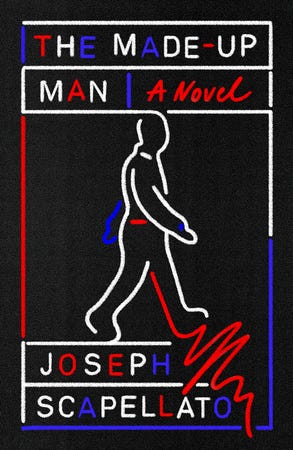
In my favorite film noir works, these conventions feed (and are fed by) a risk-taking voice. I tried to keep all of this in mind when attempting my own literary film noir novel, The Made-Up Man. In it, the narrator, a Chicagoan named Stanley, accepts his Uncle Lech’s offer to apartment-sit in Prague, even though he knows that doing so will place him at the center of one of his uncle’s maniacal performance art projects, which will mine Stanley’s personal life for material in increasingly sinister ways. I tried to keep the genre’s conventions in mind while banging away at this novel, hoping to work both with and against them.
Over the last few years, I’ve read a number of exciting, voicey novels that artfully interrogate these conventions, selectively or all together. Here’s a list of recent literary noir novels in which the authors brilliantly rebuild, repurpose, or burn to the ground the many shadow-throwing structures of this genre.
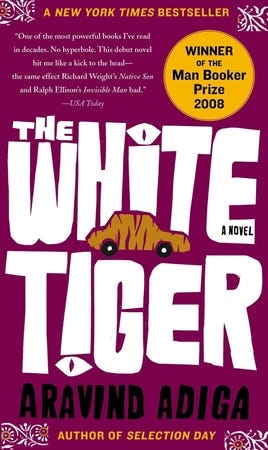
The White Tiger by Aravind Adiga
Balram, a poor man in modern India, becomes a driver for a rich family, and when the stars align, he murders his boss. (This is not really a spoiler.) Balram is an immoral moral philosopher — this darkly comedic narrative is enriched by his tell-it-like-it-is asides, many of which offer blazing critiques of the state of his country. His crime permits a certain kind of escape, and in a way, the novel is Balram’s careful argument in defense of this escape, no matter the price that others will have to pay.
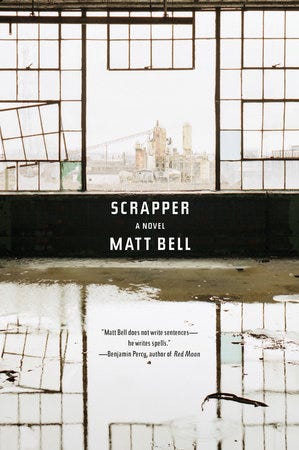
Scrapper by Matt Bell
Kelly is a scrapper in half-collapsed Detroit, Michigan. One day, while on the job — breaking into an abandoned home — he finds and rescues a kidnapped child, Daniel. Kelly’s grim obsession with catching Daniel’s kidnapper grows, leading not only to a new crime, but to an old one, uncovered in the still-smoking wreckage of Kelly’s past. A starkly beautiful novel, shot through with dark wonder.
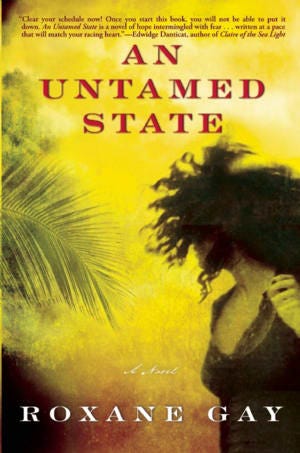
An Untamed State by Roxane Gay
On a visit to Haiti with her husband and baby, Mireille, a young Haitian American woman, is abducted by a gang of kidnappers. When her father, a wealthy developer, refuses to pay the ransom, the kidnappers sexually assault Mireille for 13 days. In brutally direct prose, this novel strides through the agonizing aftermath of these events, taking the reader into an ethically complex world of trauma, oppression, and grace. An unforgettable debut from one of our most important writers.
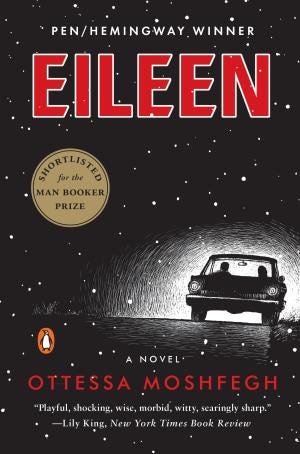
Eileen by Ottessa Moshfegh
Eileen walks the reader through the series of events that led her to run away from her New England hometown of “X-Ville” 40 years ago, when she was working as a secretary for a boy’s prison and trapped at home with her alcoholic ex-cop father. With a dazzling combination of magnetic retrospective narration and foreshadowing in one corner, and consistently stunning characterization and prose in the other, Eileen is the rare novel that is both a blistering page-turner and a sparkling page-lingerer.
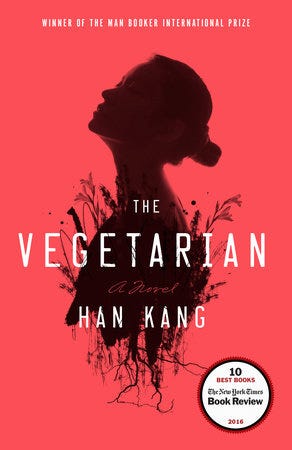
The Vegetarian by Han Kang
After a harrowing, vivid dream, Yeong-hye, a young woman in Seoul, refuses to eat or to cook with meat — she roots through the fridge/freezer and pitches every piece of animal flesh that she can find. This “crime” results in a lyrically rendered escalation of obsession. The consequences are alarming for Yeong-hye, and uproot the lives of the novel’s other point-of-view characters: a stubborn husband, an intrigued brother-in-law, a concerned sister. The Vegetarian is an utterly transfixing study of madness, blindness, and alienation.
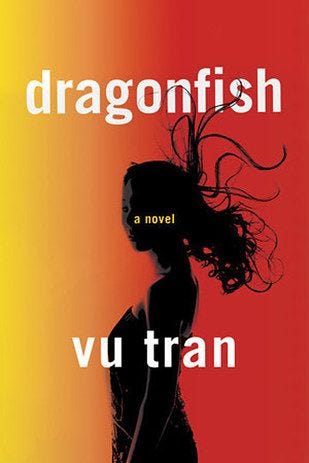
Dragonfish by Vu Tran
Robert, an Oakland-based cop, is forced by Sonny, a Las Vegas-based smuggler, to track down the complicated woman they were both once married to: Susy. Expertly paced and plotted, with many well-timed momentum-building revelations, this gritty novel is firmly rooted in a devastating immigration narrative. Susy, who fled by boat from Vietnam, haunts Robert — and the reader — in the most astonishing ways.
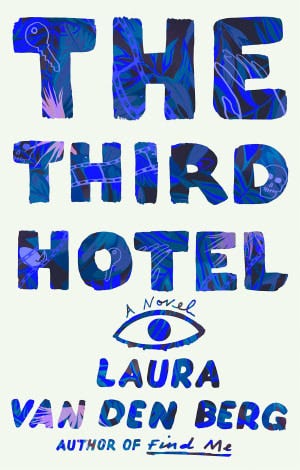
The Third Hotel by Laura van den Berg
After her film-critic husband is killed in a hit-and-run, Clare attends his horror film conference in Havana anyway, by herself. While there, however, she spots him. Then shadows him. This book is an all-consuming, mesmerizing dream, mysterious and wise, the architect of its own spectacularly profound logic. The Third Hotel, like so much of van den Berg’s work, fearlessly wades through the most confounding layers of grief and love.
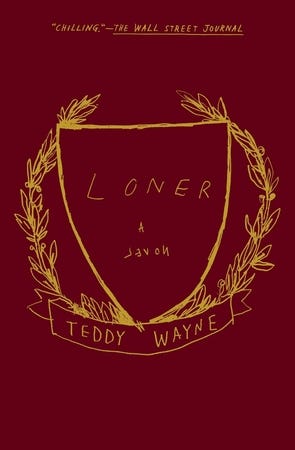
The Loner by Teddy Wayne
David, a first-year student at Harvard, is frustrated with what he sees as his own forgettable social insignificance. When he meets Veronica, an attractive, moneyed, and fearsome woman — to whom this first-person narrative is addressed — he schemes to pursue a relationship with her, unaware of her own hidden plans. The inevitable collision is shocking. This disturbing novel, animated by David’s lively erudition, honors its characters’ many complexities with insights that are unforgettable.

About the Author
Joseph Scapellato’s debut story collection, Big Lonesome, was published in 2017. He earned his MFA in fiction at New Mexico State University and has been published in Kenyon Review Online, Gulf Coast, Post Road Magazine, PANK, UNSAID, and other literary magazines. His work has been anthologized in Forty Stories, Gigantic Worlds: An Anthology of Science Flash Fiction, and The Best Innovative Writing. Scapellato is an assistant professor of English in the creative writing program at Bucknell University. He grew up in the suburbs of Chicago and lives in Lewisburg, Pennsylvania, with his wife, daughter, and dog.


8 Works of Literary Noir was originally published in Electric Literature on Medium, where people are continuing the conversation by highlighting and responding to this story.
Source : 8 Works of Literary Noir









